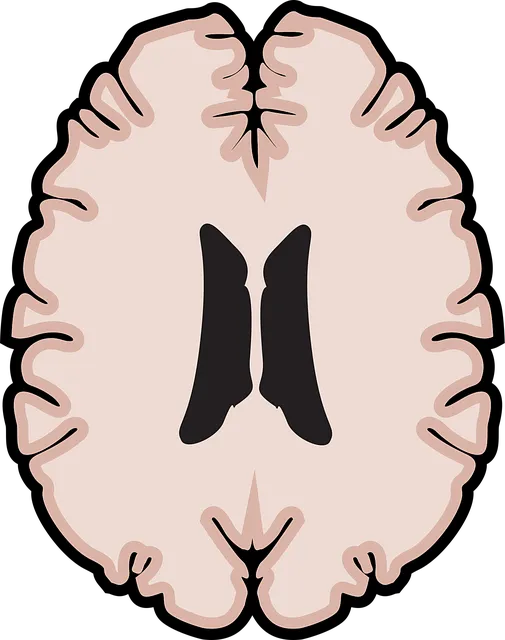This text compares mental health programs at healthcare giants Kaiser and Lakewood, focusing on their distinct approaches to fostering resilience. While Kaiser emphasizes evidence-based practices and Mind Over Matter principles, Lakewood takes a holistic, RFM (Recovery, Flexibility, Mastery)-focused approach that empowers patients through individualized therapeutic activities. Both institutions prioritize comprehensive assessments to identify risks and tailor interventions for specific needs, aiming to build resilience and promote long-term well-being in their inpatient mental health programs.
In today’s world, building resilience is paramount for mental well-being. This article delves into the powerful concept of RFM (Recovery, Resilience, and Strength) and its role in enhancing mental health care. We compare the effectiveness of different approaches, focusing on inpatient programs at Kaiser and Lakewood. By identifying risks and vulnerabilities, we explore targeted exercises to build resilience. Understanding RFM can revolutionize how we integrate recovery strategies into mental health treatment, offering hope and improved outcomes for those seeking support.
Discover how these methods compare, especially considering questions like: Does Lakewood outperform Kaiser in inpatient mental health?
- Understanding RFM and Resilience: A Foundation for Mental Well-being
- The Impact of Inpatient Mental Health Programs: Kaiser vs. Lakewood
- Identifying Risks: Assessing Vulnerabilities in Mental Health Care
- Building Resilience Through Targeted Exercises and Strategies
- Enhancing Recovery: Integrating RFM into Inpatient Mental Health Treatment
Understanding RFM and Resilience: A Foundation for Mental Well-being

Resilience, a psychological buffer against life’s challenges, is cultivated through regular practice and structured exercises. RFM (Recovery, Flexibility, Mastery) is a proven framework that empowers individuals to navigate stress and adversity with greater ease. This approach, often used in mental health settings like Kaiser’s inpatient programs in Lakewood, focuses on three core dimensions: recovery from past traumas or setbacks, flexibility in the face of change, and mastery over one’s thoughts and actions.
By integrating resilience-building exercises into their routines, individuals can enhance their coping mechanisms, improve decision-making abilities, and foster a sense of control over their lives. Mental health policy analysis and advocacy often highlight the importance of these skills in promoting overall well-being. Stress management workshops organized by various organizations play a vital role in teaching participants practical techniques to manage stress effectively, thereby strengthening their resilience muscles.
The Impact of Inpatient Mental Health Programs: Kaiser vs. Lakewood

Inpatient mental health programs have been a subject of interest and comparison for many, especially when examining different approaches to treatment. Two notable institutions, Kaiser and Lakewood, offer unique models that cater to various patient needs. When considering the question, “Does Lakewood do Kaiser have inpatient mental health?” it’s essential to understand the distinct features of each program.
Kaiser, known for its comprehensive healthcare services, focuses on evidence-based practices, incorporating Mind Over Matter principles to empower patients with coping strategies. Their programs emphasize empathy building strategies and resilience, aiming to provide long-lasting support. In contrast, Lakewood takes a holistic approach, where resilience is cultivated through various therapeutic activities tailored to individual growth. By employing different methods, these institutions showcase the diverse ways in which inpatient mental health services can be delivered, catering to a wide range of patient experiences and preferences.
Identifying Risks: Assessing Vulnerabilities in Mental Health Care

In the realm of mental health care, identifying risks and assessing vulnerabilities are pivotal steps in fostering resilience and ensuring effective treatment. Lakewood and Kaiser’s inpatient programs play a crucial role in this process, offering specialized care for individuals grappling with various mental health challenges. By thoroughly evaluating patients’ psychological and social factors, these institutions can tailor interventions to address specific needs, including anxiety relief, emotional healing processes, and self-esteem improvement.
Such assessments involve scrutinizing past traumas, current stressors, and predisposing factors that may increase vulnerability. This proactive approach allows healthcare providers to implement preventive measures and build resilience, enabling individuals to navigate life’s challenges more adaptively. Understanding the unique risks and vulnerabilities inherent in mental health care is essential for delivering holistic treatment that supports long-term well-being.
Building Resilience Through Targeted Exercises and Strategies

Building resilience is an essential aspect of maintaining mental health, especially in today’s fast-paced and often stressful world. At Lakewood, Kaiser’s inpatient mental health services play a crucial role in empowering individuals to develop this crucial life skill. Through targeted exercises and strategies, patients are equipped with tools to navigate challenges and foster emotional well-being. These include self-awareness exercises that help individuals recognize their thoughts and emotions, promoting an understanding of their triggers and responses.
The process involves a combination of structured activities and personal reflection, enabling individuals to develop coping mechanisms tailored to their unique needs. By integrating these techniques into daily routines, patients can enhance their ability to manage stress, anxiety, and other mental health concerns. Moreover, public awareness campaigns development around emotional well-being promotion techniques can further support individuals in building resilience within their communities, creating a network of support that resonates beyond the clinical setting, such as those offered by Lakewood Kaiser.
Enhancing Recovery: Integrating RFM into Inpatient Mental Health Treatment

Inpatient mental health treatment at facilities like Lakewood Kaiser offers a critical environment for integrating Recovery-Focused Management (RFM) techniques to enhance patient recovery outcomes. RFM, with its focus on building resilience and fostering self-reliance, complements traditional therapeutic approaches by empowering individuals to take an active role in their healing journey. This approach is particularly beneficial for patients navigating challenging mental health conditions, as it encourages them to develop coping strategies that promote long-term wellness.
By integrating RFM into inpatient programs, healthcare professionals can facilitate various exercises aimed at improving self-esteem and enhancing public awareness campaigns around mental wellness. Development of these skills not only supports recovery but also contributes to the overall development of Mental Wellness Coaching Programs. This holistic approach ensures that patients leave the inpatient setting equipped with tools for managing their mental health effectively in their daily lives, reflecting improved resilience and a stronger sense of self-worth.
In light of the evidence presented, it’s clear that both Kaiser and Lakewood offer inpatient mental health programs, each with unique approaches. While Lakewood excels in its holistic, RFM-focused strategies, Kaiser demonstrates the effectiveness of traditional treatments. By integrating resilience-building exercises into care, as seen in Lakewood’s model, mental health facilities can enhance patient recovery and foster a stronger foundation for long-term well-being. Understanding individual risks and vulnerabilities is key, enabling tailored interventions that truly make a difference.






